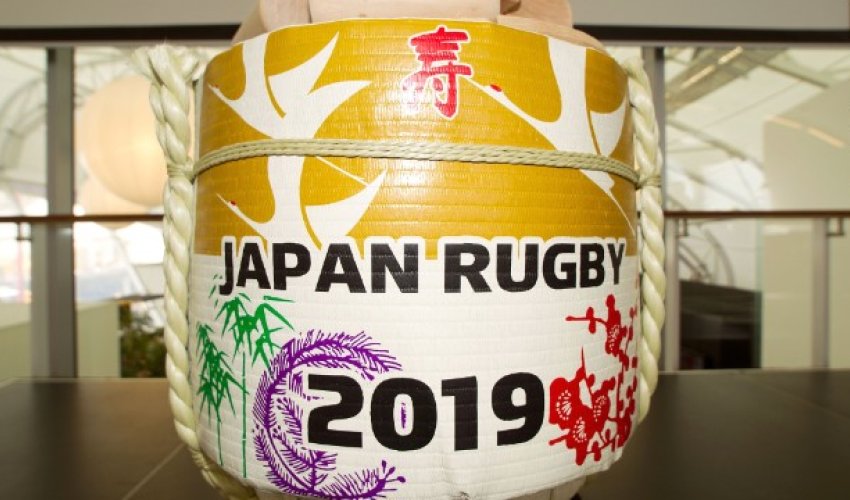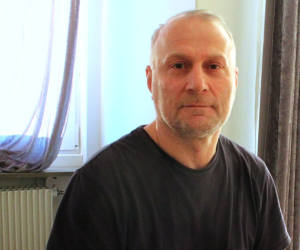Japan: Land of the rising scrum? - PHOTO

When last month Panasonic Wild Knights overhauled a deficit to beat Suntory Sungoliath 45-22, they were crowned champions of the domestic Top League.It may not be how things are done in powerhouse nations such as England and New Zealand but, in the land of the rising sun, rugby's popularity is on the increase.This weekend, the Tokyo Sevens will be hosted in the capital, while looming on the horizon is the larger prospect of the 2019 World Cup, making Japan the first Asian host of rugby's showpiece.Rugby is already reasonably popular in Japan -- with 125,000 participants and 3,361 clubs, it boasts the sixth-largest playing population in the world -- but it is dwarfed by football and baseball, and coverage of the sport is by pay-per-view television only.Former England international James Haskell, who played for Tokyo's Ricoh Rams in 2011-12, believes those numbers are merely the tip of the iceberg."Japan can be a proper rugby superpower, 100%," says Haskell, now back playing for English side Wasps. "You only have to look at the interest there and the number of people. There's been a change in attitude to coaching and the sport's growing massively."There's often this perception that Japanese people are too small to be a proper rugby-playing nation. Some people suggested that I (at 6 foot 4 inches tall) would be a giant out here but there are plenty of people bigger."But in terms of popularity and player numbers, the World Cup will take it to another level. The interest should spring further from there."Sevens is very new to Japan. As a result, playing numbers are still relatively low for this format of the game and this weekend's event in Tokyo will be the first appearance by a Japanese team in the 2013-14 HSBC Sevens World Series.But in 15-a-side, Japan has a surprisingly rich rugby history, although with the status of a minnow of the sport. The "Cherry Blossoms" have played in every World Cup since its inception in 1987, although the wins have been in short supply -- their sole victory coming against Zimbabwe in 1991.The first recorded game in the country took place in 1874 between British sailors in Yokohama but the sport was officially introduced by Professor Edward Bramwell Clarke and Ginnosuke Tanaka -- both graduates from Cambridge University in England -- at Tokyo's Keio University at the end of the 19th century.Clarke's goal was to alleviate boredom. He once stated that the students "seemed to have nothing to occupy them out of doors in the after-summer and after-winter days. Winter baseball had not yet come in and the young fellows loitered around wasting the hours and the lovely outdoor weather."With that, a university rugby scene was born and it remains the main feeding route for rugby players in Asia.Clarke argued that rugby played well to Japanese traditions, a view echoed today by ex-Prime Minister Yoshiro Mori, who led the Japan 2019 World Cup bid."In rugby, one person doesn't become a star, one person plays for all, and all play for one," Mori stated.Japan is now the 13th ranked nation in global rugby terms but has ambitions to break into the top 10 by 2015 and the top eight in 2019 under former Australia coach Eddie Jones.The Tasmanian, whose mother is Japanese, coached Tokyo's Suntory Sungoliath from 2009-12 before taking over the national side."Japanese rugby culture is very different from any other rugby culture in the world so you've got to adjust to that and keep the good things of the culture and try to bring new things to the game here," the 54-year-old told CNN's Rugby Sevens Worldwide show.Jones is also pushing for a more Japanese flavor to the team rather than the heavy reliance on foreign players, who had qualified by residency, under previous coach John Kirwan -- himself a New Zealander -- at the 2011 World Cup."Getting foreign players in and getting foreign coaches in here has helped Japan look outward," Jones says."With the World Cup in 2019 one of the most important things is to have a successful 15s side and a successful sevens side so that the momentum of rugby grows."Sevens, however, has a relatively small fan base in Japan, says Tomoshige Fujino, rugby correspondent of The Mainichi Newspapers group."They are trying to strengthen the sport for Rio 2016 but are having a difficult time doing so at the moment," he says.Japan has one major disadvantage over most rugby-playing nations in that quest in that the majority of its players also have full-time jobs.Teams in the Top League, set up in 2003, are effectively big-name companies such as the aforementioned Panasonic and Suntory."Everything has been geared towards domestic success, be it the university champion team or the company champion tournament team, and there's been no international outlook," Jones says.Usually just a small number of players are full-time rugby players and most of those are gaijan (foreigners) -- who have been coming to play in Japan since the 1970s.Prior to the game turning professional in 1996 there were accusations in Japan's direction of what was called "shamateurism" -- and these days players such as South African Jaque Fourie can boast salaries of around $850,000.About 7% of Top League players are from overseas, but only two foreigners can be on the pitch per side at any given time -- although the three-year residency rule slightly flouts that."The Top League is a mixture of professional and amateur players," Fujino says. "Amateur players all belong and work for a corporation and these companies own and operate the team."They work in the morning and they practice in the afternoon. These companies provide a basic salary and job security, so it is rare for these amateur players to change teams."Professional players in Japan are the same as any other country. They may receive higher pay but their future is unstable and not secure."Having previously played alongside solely professional players in England, Haskell says this company rugby concept was hard to comprehend."Typically in Japan you have a squad of 60 players, of which 12 are full-time and the rest go to work every day," he explains."So guys in our side at Ricoh would, say, work at the marketing department there and then come to training after a full day's work."It's a strange concept to us but the Japanese employment laws are such that generally people have a job for life and people don't want to give up that contract. So you could get an odd mix of senior management playing alongside junior workers."Confidence is growing in Japan, where Top League players have been able to learn from the likes of World Cup winners Sonny Bill Williams, of New Zealand, and Australian Stephen Larkham.Indeed, Japanese players have even been selected for Super Rugby franchises, if only in bit-part roles. This year Harumichi Tatekawa became the third from his country to do so when he was signed by Australia's ACT Brumbies.Ahead of hosting the 2019 World Cup, Japan is hoping to build on its first win over a major rugby nation -- last June's 23-8 victory over a Wales team bereft of 15 players away on British and Irish Lions duty.Jones says he is hoping to use the sevens format to develop players for the 15-a-side stage, and there will be two players from the top squad in the team taking part in Tokyo this weekend.(CNN)ANN.Az




































 Photo
Photo 



 Video
Video 

